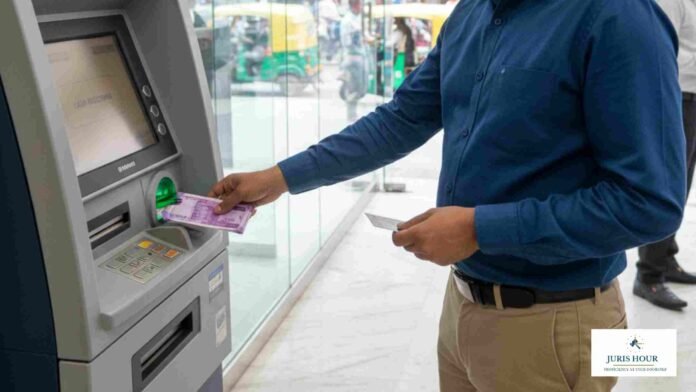It is no secret that Indians prefer using cash and UPI for all kinds of transactions, from paying for small purchases to settling large personal deals. However, what many do not realise is that excessive use of cash can lead to severe income tax penalties, even in personal or friendly transactions.
According to the Income Tax Act, 1961, if a person accepts or repays cash beyond specified limits, they could face penalties equal to the amount of cash involved under Sections 271D, 271E, or 271DA. The Income Tax Department, in a recently issued brochure, has reiterated its warning and urged taxpayers to “say no to cash transactions.” The department has clarified that even private loans or deposits between friends or relatives fall within the ambit of these provisions.
Table of Contents
What the Law Says: Section 269SS and Section 271D
Gaurav Jain, Partner – Direct Tax, Forvis Mazars in India, explains that Section 269SS prohibits accepting any loan, deposit, or “specified sum” of ₹20,000 or more in cash. This includes cash loans from friends or family, deposits, or advances related to property transactions.
“If a person accepts a cash loan of ₹20,000 or ₹30,000, it attracts a penalty under Section 271D equal to the amount accepted in cash,” Jain said. The law mandates that such transactions must be carried out only through an account payee cheque, bank draft, or digital transfers such as NEFT, RTGS, or UPI.
Penalty for Receiving or Paying in Cash
The Income Tax Department’s brochure highlights several provisions that restrict cash transactions:
Section 269SS: Cash Loans, Deposits, and Advances
No one can accept ₹20,000 or more in cash as a loan, deposit, or specified sum. Exemptions apply to transactions with the government, banks, government companies, or where both parties have only agricultural income. The penalty for violation is equal to the cash received, under Section 271D.
Section 269ST: Cash Receipts of ₹2 Lakh or More
No person, whether taxable or not, can receive ₹2 lakh or more in cash in a single day from one person, in a single transaction, or for one event or occasion. This applies to fees collected by educational or medical institutions, donations to religious bodies, and private transactions between related persons. The penalty for violation is equal to the amount received in cash, under Section 271DA.
Section 269T: Cash Repayment of Loans or Deposits
No person, company, or firm can repay any loan, deposit, or advance in cash if the total amount, including interest, is ₹20,000 or more. The penalty under Section 271E equals the amount repaid in cash.
Section 269SU: Mandatory Electronic Payment Facility
Businesses with turnover exceeding ₹50 crore must provide facilities for digital payments through credit/debit cards, net banking, NEFT, RTGS, IMPS, UPI, or BHIM Aadhaar Pay. Failure to comply can attract a penalty of ₹5,000 per day under Section 271DB.
Supreme Court Ruling Tightens Oversight on Cash Payments
In April 2025, the Supreme Court in Civil Appeal No. 5200 of 2025 took a firm stance against high-value cash transactions. The Court ruled that any payment of ₹2 lakh or more in cash violates Section 269ST, which aims to curb black money and promote digital transactions. The penalty under Section 271DA falls on the recipient, who must pay an amount equal to the cash received.
The Court also issued several directions to ensure compliance. In any case involving cash payments of ₹2 lakh or more, the Court must inform the jurisdictional Income Tax Department for verification. Similarly, Sub-Registrars must notify tax authorities if a property transaction includes cash consideration above ₹2 lakh. If an Income Tax Authority finds that a registering officer failed to report such a case, the lapse must be escalated to the Chief Secretary for disciplinary action.
Expert Take: Government and Judiciary Closely Monitoring
Chartered Accountant Suresh Surana observed that the Supreme Court’s directions show a clear intent to closely monitor all cash-based transactions. “The Court has made it clear that responsibility does not rest only on the payer or receiver—it extends to registrars and even the judiciary. Strict action will follow if authorities fail to report such cash dealings,” Surana said.
Key Takeaways for Taxpayers
Taxpayers should avoid accepting or repaying cash amounts above ₹20,000 for loans, deposits, or repayments. They should not receive ₹2 lakh or more in cash from any person for any reason. Businesses with turnover exceeding ₹50 crore must ensure they provide digital payment options to customers. Penalties equal to the cash amount may be imposed for violations, and courts and registrars are now obligated to inform tax authorities of large cash transactions.
Bottom Line
The Income Tax Department and the judiciary are tightening their oversight on high-value cash transactions. Whether between friends, in property dealings, or through business payments, cash dealings above the prescribed limits can attract penalties equal to 100 percent of the transaction amount and scrutiny from tax authorities. The message from the government is clear: go digital, stay compliant, and avoid cash transactions beyond permitted limits.

